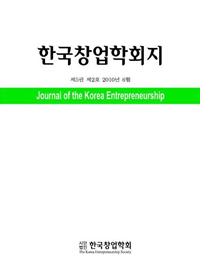- 영문명
- Exploring the Diffusion Factors of Adaptive Social Innovation : Focusing on the Introduction of the Innovative Education Model ‘42 Seoul‘
- 발행기관
- 한국창업학회
- 저자명
- 황은정(Eunjung Hwang) 이찬구(Chan-Goo Yi)
- 간행물 정보
- 『한국창업학회지』제20권 제3호, 129~157쪽, 전체 29쪽
- 주제분류
- 경제경영 > 경영학
- 파일형태
- 발행일자
- 2025.06.30

국문 초록
본 연구는 프랑스의 혁신적 소프트웨어 교육 모델인 에꼴42(École 42)의 서울 캠퍼스인 42서울 사례를 중심으로, 기술 기반 사회문제에 대응하는 ‘대응적 사회혁신’의 확산 요인을 분석한다. 대응적 사회혁신은 기존 체계로 해결이 어려운 문제에 대해 새로운 제도 실험과 집합행동을 통해 공공문제의 대안을 모색하는 실천으로, 본 연구는 이를 기술, 경제, 사회, 정책의 네 영역 간 상호작용을 강조하는 통합혁신모형(Integrated Innovation Model)을 바탕으로 설명한다. 정책 문서 및 언론 보도 등 문헌 자료와 42서울 기획·운영 관계자 심층인터뷰를 통해 분석한 결과, 디지털 전환과 고성능 인프라의 보편화, 디지털 경제에 따른 일자리 구조 변화, 기존 교육체계의 한계, 사회안전망의 사각지대 확대, 제도 개혁에 대한 정책적 수용성 등이 복합적으로 작용하여 새로운 교육모델의 확산을 가능하게 했음을 확인하였다. 본 연구는 대응적 사회혁신의 실증을 통해 이론적 외연을 확장하고, 향후 유사한 교육정책 설계에 실천적 함의를 제공한다.
영문 초록
This study analyzes the diffusion factors of 'adaptive social innovation' in addressing technology-based social problems, focusing on the case of 42Seoul, the Seoul campus of École 42, France's innovative software education model. Adaptive social innovation is defined as a practice that seeks alternatives to public problems through new institutional experiments and collective action for issues that are difficult to resolve through existing systems. This study explains this phenomenon based on the Integrated Innovation Model, which emphasizes interactions among four domains: technology, economy, society, and policy. Through analysis of documentary materials including policy documents and media reports, as well as in-depth interviews with 42Seoul planning and operation personnel, the study confirmed that the diffusion of this new educational model was enabled by the complex interplay of several factors: digital transformation and the universalization of high-performance infrastructure, changes in job structures due to the digital economy, limitations of existing educational systems, expansion of blind spots in social safety nets, and policy receptiveness to institutional reform. This study extends the theoretical scope through empirical evidence of adaptive social innovation and provides practical implications for designing similar educational policies in the future.
목차
Ⅰ. 서 론
Ⅱ. 이론적 배경
Ⅲ. 42서울의 확산요인과 통합혁신모형과의 정합성
Ⅳ. 결론
참고문헌
키워드
해당간행물 수록 논문
참고문헌
최근 이용한 논문
교보eBook 첫 방문을 환영 합니다!

신규가입 혜택 지급이 완료 되었습니다.
바로 사용 가능한 교보e캐시 1,000원 (유효기간 7일)
지금 바로 교보eBook의 다양한 콘텐츠를 이용해 보세요!




